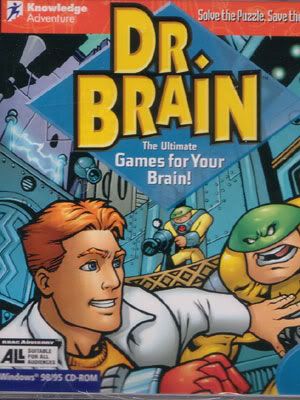JOGOS PRESERVAM CÉREBRO

Investigadores canadianos estão a descobrir pistas que apontam para o facto de que os jovens do século XXI, alimentados com uma dieta de videojogos, gadgets sem fios e comunicações ubíquas, estão a desenvolver capacidades multitarefa que defendem os seus cérebros do desgaste produzido pelo envelhecimento.
“A body of research suggests that playing video games provides benefits similar to bilingualism in exercising the mind. Just as people fluent in two languages learn to suppress one language while speaking the other, so too are gamers adept at shutting out distractions to swiftly switch attention between different tasks.Que os videojogos ajudam a desenvolver os reflexos, a coordenação motora e a capacidade de resolver problemas lógicos já é ponto assente há vários anos. A novidade pode mesmo ser a capacidade de manter activas regiões do cérebro que normalmente perdem alento à medida que os anos passam.
A new study of 100 university undergraduates in Toronto has found that video gamers consistently outperform their non-playing peers in a series of tricky mental tests. If they also happened to be bilingual, they were unbeatable.”
"That study, published in the Journal of Cognitive Neuroscience, shows the elderly lose the ability to power up brain regions, such as the frontal lobe, needed to focus on a task, and to turn down activity in inner brain regions that are most active when a person is in idle or default mode.O Globe and Mail publica desenvolve o assunto numa notícia (para ler é preciso estar registado) que me foi gentilmente enviada pelo João Vitória.
(…)
In contrast, the brain images of people between ages 20 and 30 displayed a far more dramatic see-saw effect activating and de-activating regions as they shifted out of idle to task. The study found this pattern begins to dull in middle age and actually results in cognitive deficits beyond age 60.
Dr. Grady said the results suggest that the brains of today's youth might grow up differently.
"Young people using all of these gadgets all of the time, at the same time, it may actually make a difference when they're old, like bilingualism does," she said. "We know that practice changes the brain, as with playing an instrument, a motor task -- it makes physical changes in the brain. Maybe those kids who play video games and who are also bilingual will be the best of older adults at filtering out distractions."
Neuroscientist Shitij Kapur, chief of research at Toronto's Centre for Addiction and Mental Health, said "it would be quite reasonable to expect that these teens are good at multitasking, because they grow up in a world that demands it."


<< Home